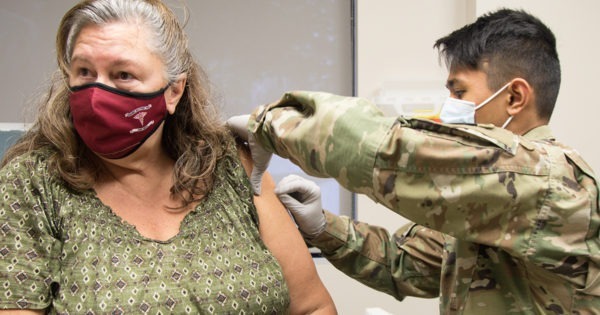
Since the U.S. government – and many others – began funding the creation of often-experimental and controversial COVID-19 vaccines, then devoted considerable effort to making the vaccines free to consumers and readily available to all who want them, the pharmaceutical industry has minted 9 new billionaires from previously obscure companies.
Per CNN, the 9 new billionaires include CEOs and investors from Moderna, BioNTech, and China’s CanSino Biologics. Perhaps the most unexpected change in financial situations comes from the CEO of Moderna, Stéphane Bance, and the company’s early investors. Prior to its mRNA COVID-19 vaccine, Moderna had never received FDA approval or authorization for any of its drugs. Around the time the Moderna COVID-19 vaccine was approved for emergency use, MarketWatch reported that Moderna “that Moderna “has seen its market capitalization increase to about $54.3 billion in recent trading from just $6.6 billion at the end of 2019, according to FactSet data. In comparison, Pfizer’s market cap was $211.1 billion.”
Similar is the story of BioNTech CEO Ugur Sahin and the company’s many investors. Prior to its role in the creation of the BioNTech Pfizer COVID-19 vaccine, BioNTech was described as “a relatively little-known biotechnology company” created “by husband and wife duo Ugur Sahin and Ozlem Tureci” in Mainz, Germany. “Both Sahin and Tureci are the children of Turkish immigrants,” noted CNBC. “Sahin’s father worked at a Ford factory in Cologne while Tureci’s was a doctor.” BioNTech originally attempted “to develop a broader range of cancer immunotherapies” and “research centered on messenger RNA (mRNA) molecules.” With the skyrocketing price of BioNTech’s stocks, “Sahin and Tureci now rank among the 100 richest Germans.”
CanSino Biologics boasts a similarly astronomic rise to greatness, though it has more accomplishments under its belt, including a vaccine to prevent Ebola. CanSino, however, was aided by a propaganda effort commissioned by the Communist Chinese Party’s personal army: a “virologist and major general in China’s People’s Liberation Army” was “one of the first people on earth to get a COVID-19 vaccine” in February of last year. China never told the public whether it was CanSino’s vaccine injected into Dr. Chen Wei, and ultimately deleted its social media posts touting the vaccination, “But Cansino’s candidate nonetheless became one of the early favorites in the COVID-19 vaccine race.”
Fortune spoke with Pierre Morgon, “Cansino’s senior vice president for international business,” who touted the Chinese military’s role in developing the vaccine. “The [Academy of Military Medical Sciences] is a very credible partner and very strong with science,” said Morgon, who added that the Chinese military “was more involved with the early design phase, and Cansino was more involved in the clinical development phase.”
The massive increase in fortunes of those creating the controversial vaccines has led some to push for vaccine patents to be stripped, a move strongly opposed by vaccine promoter and World Health Organization funder Bill Gates. As funding for virtually every COVID-19 vaccine came from taxpayers of one country or another – many receiving funding from U.S. taxpayers – critics question whether vaccine companies should be in the business of creating new billionaires.